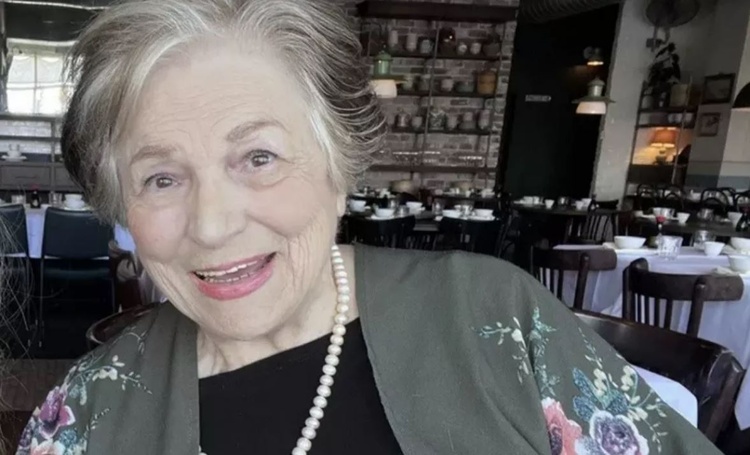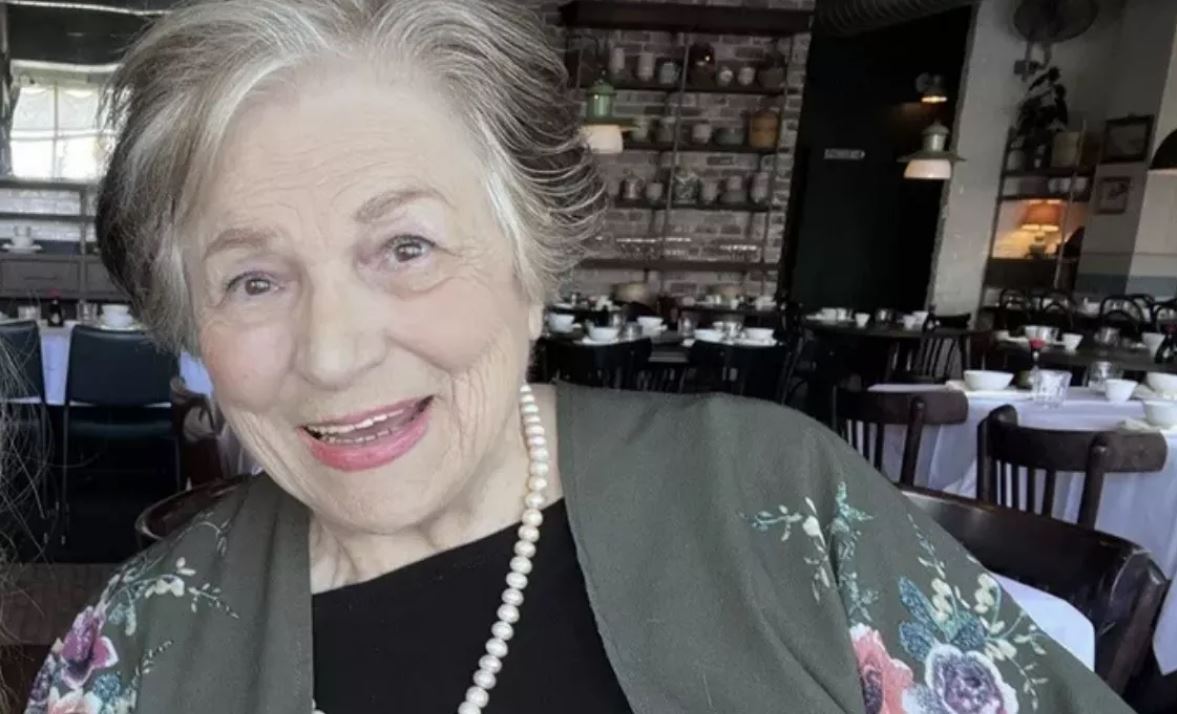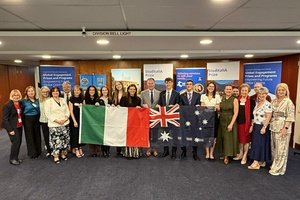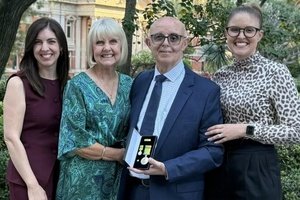The mild, sunny weather of the day and the view from the restaurant where we meet reflect Franca Arena’s disposition.
She’s a profoundly acute woman who, despite having faced grave difficulties throughout her life, remains lucid and curious about the reality of the world around her. Her story is that of a woman who has defied all kinds of conventions, who was never afraid to express her opinions.
At a time in history when only men were typically allowed to leave home and venture to an unknown continent, Arena arrived in Australia as a single woman in 1959. Her journey began at the Bonegilla migration centre, three hundred kilometres from Melbourne, before she went on to find work as a translator at the Department of Immigration.
Arena’s experience at Bonegilla touched her deeply, awakening in her a need for justice.
"The suffering and helplessness I saw in Bonegilla made me realise that I wanted to participate in the struggle for social reform and do something useful with my life. In Bonegilla, I learnt exactly what it means socially, emotionally and physically to be an immigrant," she said.
Her experience in the reception centre prompted her to start her journey into social work, wherein she influenced the fate of many Itao-Australian women, and contributed to change in the Italian community by making her way within the institutions.
Born in Genoa on August 23, 1937, Arena has always been very proud of her origins, and has remained a reference point for many in Sydney's Italian community.
In 1972, she joined the Labour Party, and in 1981, when she was elected to the New South Wales Legislative Council, she became the first woman of non-English speaking origin to be elected to the Australian Parliament.
The first-person fight she waged against abuses of power, disrupting Australian institutions from within, was a true battle for human rights ― one that began well before she founded the Council for Ethnic Communities, designed to ensure Australia’s various multicultural groups were accepted in society on an equal footing with Anglo-Saxon white Australians.
It was crucial for Arena to act as a uniting force, and thanks to her kindness of spirit and helpfulness, she received the support of various communities: from those of Greek and Maltese descent, for example, who, like the Italians, were also fighting for a seat at the table of Australian society.
"Even the politicians of the time soon realised how important our vote was, and started 'courting' us to endear themselves to our communities. Some were doing it for the sole purpose of getting votes; others really wanted to promote multiculturalism and make sure that inclusivity began to be cultivated in Australia," she continued.
“At the time, so many were victims of discrimination. We had to fight very hard to find a place in society and make our way through major struggles.
“Every year, still, millions of people around the world are forced to flee to find safety far from their own country, a phenomenon that is unfortunately becoming more and more frequent and that also involves Australia as the 'final destination'.”
Franca Arena confirms that although much has been achieved, more remains to be done. Take Australia’s detention centres, with their ever-increasing number of refugees, for example: “It is a cause for great sadness.”
Also keeping an eye on the rest of the world, Arena has very strong views on societies in which the subordination of women is deeply ingrained. With regard to the current protests erupting on the streets of Iran, Arena immediately thinks back to a July day a few years ago, on the streets of Tehran, when her head was covered by a hijab, but her feet were uncovered and there was varnish on her toenails.
"Suddenly, I heard the morality police calling me," she recounted.
"They stopped me. I didn't understand them and they didn't understand me. They were staring at the nailpolish on my feet, trying to make me understand that I couldn’t go around like this - a truly hysterical form of control. I have met many Iranians in my time: great people, generous and erudite. It is extremists who are dangerous, and unfortunately we find them everywhere in the world.”
Despite the fact that wars on women’s rights are being waged in countries across the globe, the former parliamentarian maintains that progress has been made. An incurable optimist, Arena looks to the future with hope:
“Little by little, many problems will be solved; I am confident,” she said.
“Men are not our enemies: they are with us, they want a fairer, better society, not only for us, but also for our children and grandchildren. For all the generations to come.”
A founder of the Australian Republic Movement, Arena has dedicated herself to many causes in the sphere of social work, founding the Women's Network in 1984, and a year later, the National Association of Italo-Australian Women (NIAWA), to facilitate interaction between ethnic women.
"I served as president of the association for a good 25 years, but I did not want to do it for life," she continued.
“At that time, I had Concetta Perna as vice-president ― a good, honest, educated and capable woman. I was delighted to leave the role to her, because she did a wonderful job. The future of NIAWA is uncertain due to generational changes that are difficult to navigate. In the US, for example, the National Organisation of Italian American Women receives support from the third generation, and we hope that will also happen here in Australia.”
Arena's hope is that we continue to support the dissemination of Italian language and culture, so that the sacrifices of the first generation are never forgotten.
"After World War II, Italy was on its knees and migrants were willing to do anything to build a more peaceful future for themselves. They really worked hard and built this country,” Arena added.
“In those years, there was an attempt not to mix migrants from the Pacific Islands with the 'whites' of Australia, which is why it was the Italians who were chosen to work in the sugar cane fields of Queensland. [It was] very hard work that required a lot of strength and endurance, due to the hours spent under the blazing sun. Nobody cared about the Italians, at least until they were first represented in Parliament, when everything started to change.”
With great emotion, Franca Arena looks ahead with the hope that cooperation and unity will continue to be encouraged among all of the communities that have chosen Australia as their home.












